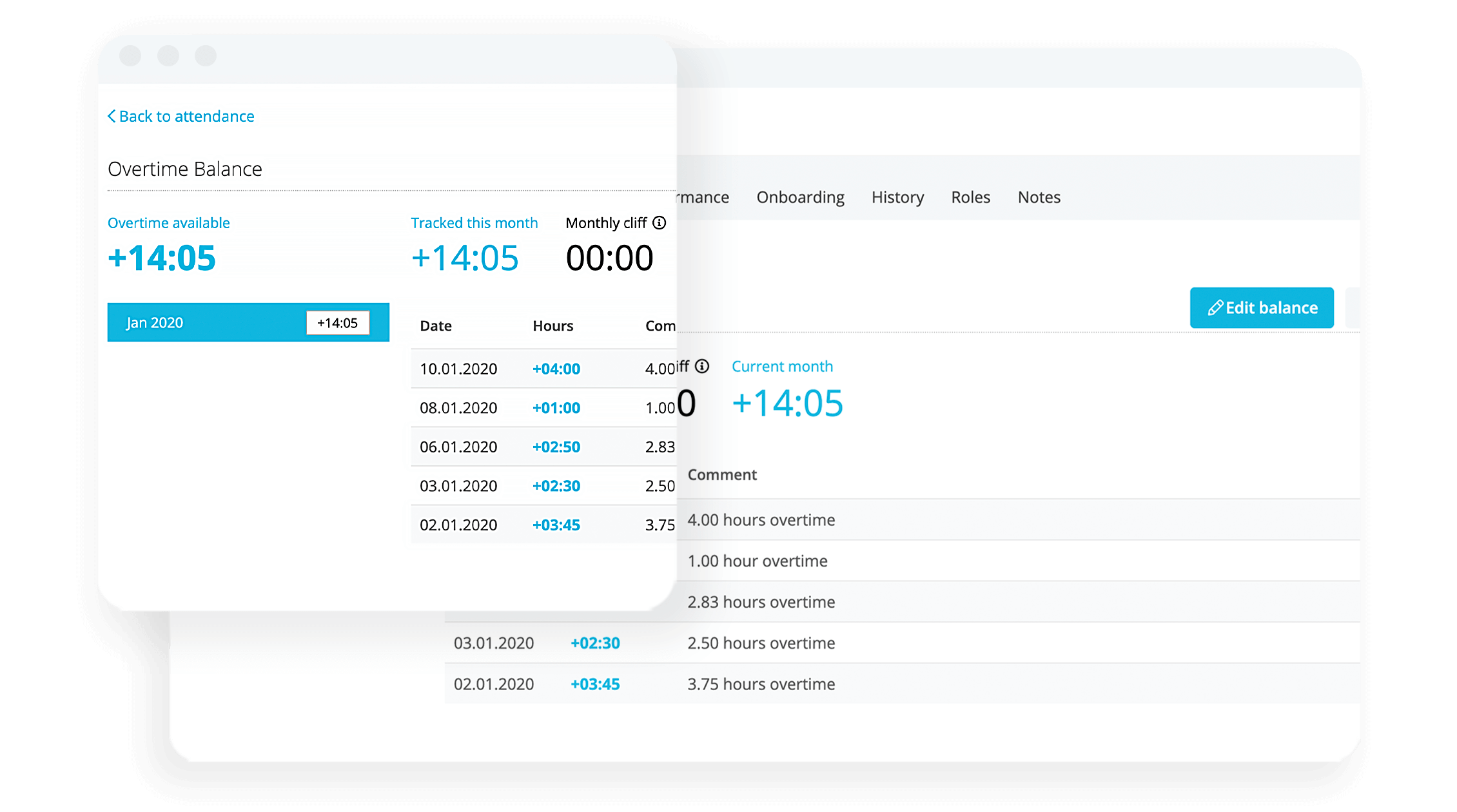The EU Working Time Directive: What it means for organisations

What does the EU’s Working Time Directive (EWTD) mean for your organisation? In this article, we offer all of the facts and strategies your organisation can pursue to help ensure compliance while boosting employee productivity.
Start tracking time and attendance with Personio today.What is the EU Working Time Directive?
In 2019, the European Union (EU) introduced a directive requiring all employers within the region to implement time tracking systems for their employees. This is known as the EU Working Time Directive (EWTD).
Essentially, the European Court of Justice (ESJ) decided that member states within the EU must implement a system to ensure employers record the daily working hours of each employee. That said, full adoption rests on member states.
Much like the EU’s similar directive on the protection of whistleblowers, the purpose of the directive aims to protect workers. Specifically, the rights of workers by ensuring they do not work excessive hours and take adequate breaks.
What does the EWTD mean for organisations?
The EU’s Working Time Directive means that companies operating within the EU (even those with headquarters in the UK) must have a system in place to track working hours for their employees. This is fast-becoming a legal requirement.
Any implemented system must be able to accurately record the time each employee works, including overtime. That information must be made readily accessible for both the employer and employee.
As the directive is adopted and implemented across EU member states, it becomes more and more important that organisations have some sort of solution in place. Not having one may risk fines, lawsuits and other legal complications.
What does this mean for UK organisations?
UK organisations are no longer subject to EU-specific laws and directives. That said, the Working Time Regulations 1998, a law based on a previous iteration of the EU Working Time Directive, applies for organisations in England, Scotland and Wales.
Important to note: Present UK legislation does not mandate any sort of system for tracking time. The current law primarily focuses on the total amount of hours (per day and per week) that an employee may be asked to work.
That said, this may change in the near future. Whether they are loosened or made more stringent is up for debate, but it cements the case for UK organisations to have some kind of system no matter where the cards fall.
Track your teams' time seamlessly

Enable your employees to enter their working hours in an efficient, legally compliant and secure system. See working hours at a glance across your company.
Get Smarter Time TrackingHow can organisations comply with the EWTD?
There are a number of ways that organisations can successfully comply with the EWTD. One option is to implement a manual time tracking system, where employees record their hours on paper or in a spreadsheet.
However, this method can be time-consuming, prone to errors and nearly impossible to maintain at scale in an organisation of any size. A far more efficient option is to use an automated time tracking solution.
Time tracking solutions can serve as a way for employees to easily track their time, and HR to report on time that has been logged, while forming the basis for long-term compliance and accurate record-keeping.
Better yet, time tracking solutions that blend in with an all-in-one HR software can add even more value. Time tracking is just one part of the employee experience, and having a solution that blends multiple stages together can be a gamechanger.
Benefits of automated time tracking solutions
Automated time tracking systems can provide a number of benefits to organisations, including:
Improved accuracy | Automated systems are less prone to human error than manual ones. |
Increased efficiency | Save time and resources by automating each step of the time tracking process. |
Enhanced compliance | Help your organisations comply with the EWTD and other relevant labour laws. |
Improved data insights | Access valuable insights that can help organisations make better decisions around their workforce. |
Invest in an all-in-one solution
The EU’s Working Time Directive is an extremely important piece of legislation for both employees and organisations. But, it forms one part of the employee experience and how organisations can optimise it.
Think about it like this:
Your time tracking solution needs to be easy for employees to use.
It also needs to be easy for HR teams to craft reports based on it.
That data also needs to feed into overtime calculations and payroll.
It may even factor into employee performance and development.
Tracking time is easier and more integrated with Personio’s all-in-one HR solution. For your organisation, it can enable a holistic experience across each step of the employee lifecycle. See it for yourself right now.
